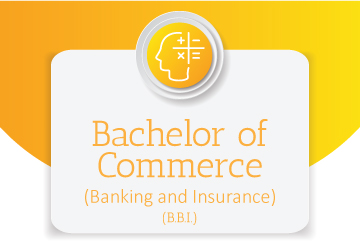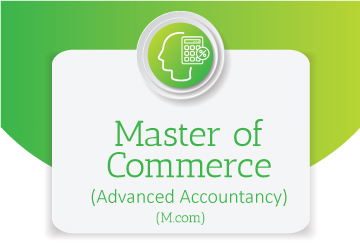Bachelor Of Commerce(Accounting & Finance)
1) B.Com (Accounting and Finance) F.Y.B.A.F.
(A candidate for being eligible for admission to the B.A.F. Degree Course shall have passed H.S.C. Examination of the Maharashtra Board of Higher Secondary Education or its equivalent examination or Diploma in any Engineering branches with two years or three years duration after S.S.C., conducted by the Board of Technical Education, Maharashtra State or its equivalent examination by securing minimum 45% marks for general category (in one attempt) at the respective Examination and minimum40% marks for the reserved category (in one attempt).
2) Course Outcome
Course outcomes are a set of competencies students acquire at the end of graduation. On successful completion, they shall :
- Have in-depth knowledge in accounting and financial subjects by different means such as classroom teachings, seminars, projects, practical training, industrial visits, conferences, expert talks, etc.
- Acquire knowledge in the field of accounting, taxation, auditing, risk management, financial accounting, managerial economics, business law, and business communications.
- Work as management trainee in Account or Finance department, they can be freelancer or can start their own start up.
3) Course Objectives
- BAF course is designed to provide in depth training to students who wants to make their career in Accounts and Finance
- It is tailored made for students who are aspiring to become Chartered Account or Financial Analyst
- It provides deep insights of Accounting, Taxation, Financial Management, Business Communication, Economics and Securities Market.
Structure & Syllabus of F.Y.B.Com.(Accounting and Finance)
DetailsSemester-III
- Financial Accounting (Special Accounting Areas) - III
- Cost Accounting (Methods of Costing) - II
- Taxation - II (Direct Taxes Paper- I)
- Information Technology in Accountancy - I
- Foundation Course in Commerce (Financial Market Operations) - III
- Business Law (Business Regulatory Framework) - II
- Business Economics - II
Semester-IV
- Financial Accounting (Special Accounting Areas) - IV
- Management Accounting (Introduction to Management Accounting)
- Taxation - III (Direct Taxes- II)
- Information Technology in Accountancy - II
- Foundation Course in Management (Introduction to Management) - IV
- Business Law (Company Law) - III
- Research Methodology in Accounting and Finance
Semester-V
- Financial Management II
- Taxation IV(Indirect Taxes-II)
- International Finance
- Financial Analysis and Business Valuation
- Financial Accounting-V
- Financial Accounting-VI
Semester-VI
- Financial Management III
- Taxation V (Indirect Taxes-III)
- Security Analysis & Portfolio Management
- Management Control System
- Financial Accounting VII
- Project Work II







